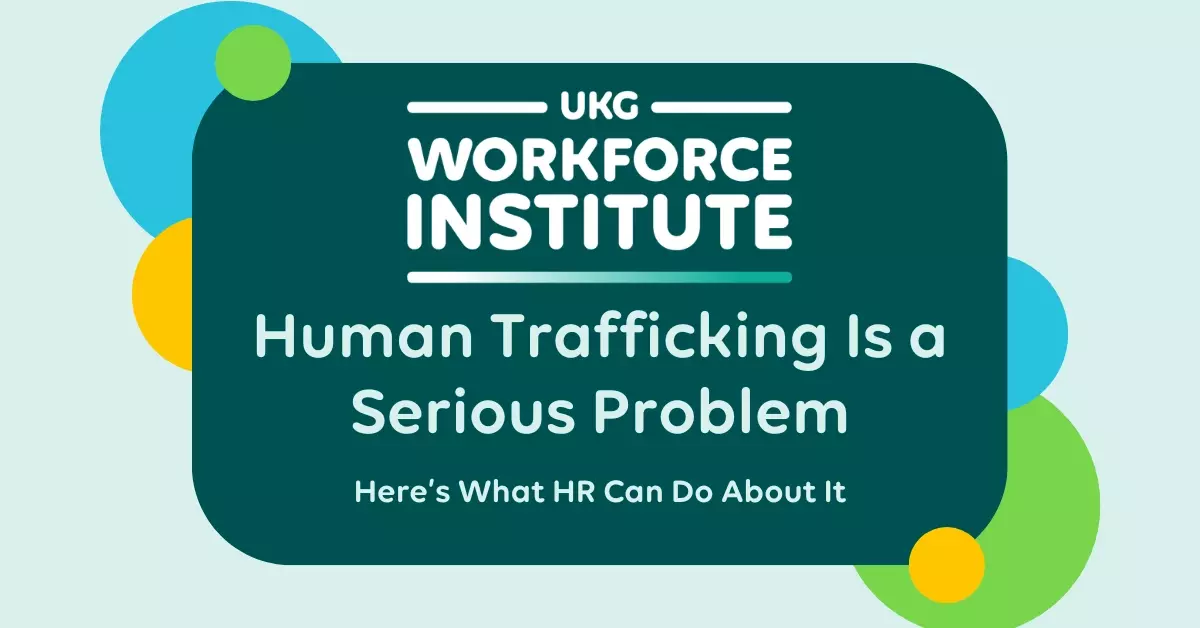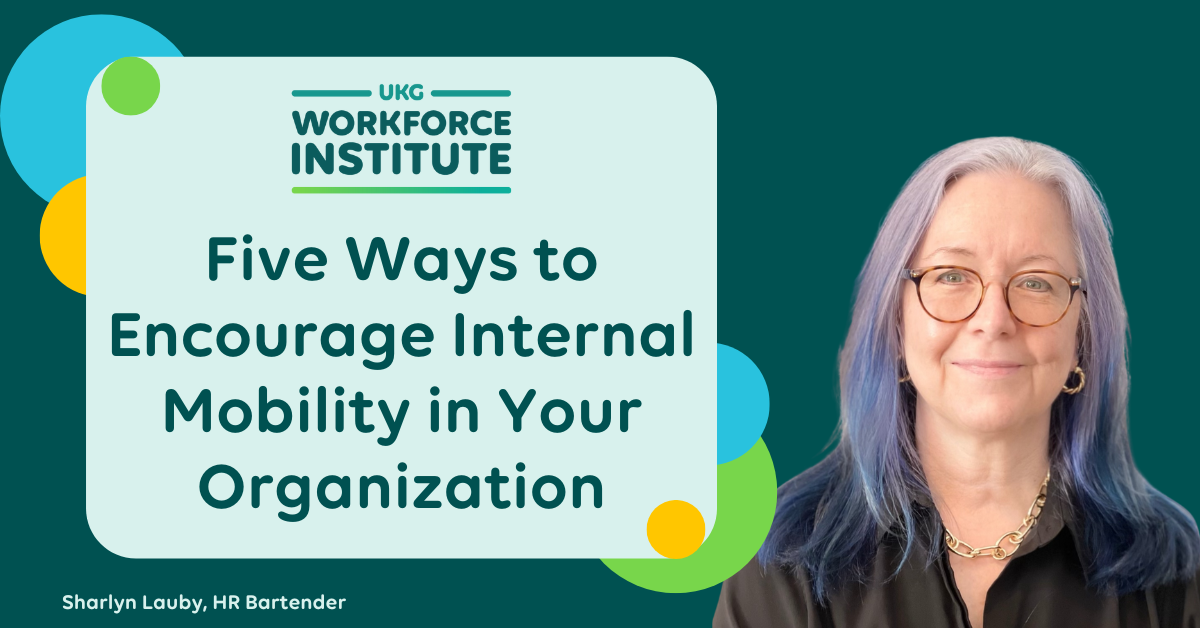As Women’s History Month unfolds, it’s crucial to confront the enduring challenges faced by women worldwide. This includes the pervasive issue of human trafficking, which is deeply entrenched and spans generations. Statistics reveal a disheartening reality: 65% of all trafficking victims globally are female, cutting across geographical borders and socioeconomic divides.
Human trafficking contributes to gender inequality and can undo the progress women have made throughout history. However, there is hope. HR departments can play a significant role in reducing the demand for trafficked labor within organizations. By taking action, HR can prevent unwitting participation in human and labor trafficking and be on the right side of history.
Understanding Human Trafficking
Human trafficking encompasses both sex and labor trafficking.
- Sex trafficking involves the recruitment, harboring, or transportation of a person for commercial sex acts through force, fraud, or coercion. Force, fraud, or coercion don’t need to be present if the victim of sex trafficking is a minor.
- Labor trafficking entails similar exploitation but for labor or services. You may see this in small businesses such as restaurants, dry cleaners, nail salons, spas, housekeeping, and childcare services. It’s also a global problem in the manufacturing, clothing, construction, technology, agriculture, and hospitality industries.
Labor trafficking is often misunderstood despite its alarming increase. Recent data reveals a surge in labor trafficking cases in the U.S., driven by economic fallout from the pandemic and an uncertain political climate around immigration.
Reducing Demand for Human Trafficking
Human trafficking is a problem that needs to be addressed. One way of doing it is by involving survivors. Survivors of human trafficking are now being included in decision-making processes, policy development, and program implementation. They possess valuable insights that only those who have experienced it can provide, which are instrumental in shaping anti-trafficking efforts.
Demand reduction is essential to fighting labor trafficking. It addresses the root causes of exploitation by targeting those who create a demand for trafficked labor. For companies, this requires implementing ethical labor standards in their operations, supply chains, and partnerships. It includes rigorous supplier vetting, fair wages and working conditions, and support for worker empowerment and rights.
As a volunteer with ShieldNC, a North Carolina-based nonprofit organization dedicated to ending human trafficking, I’ve witnessed firsthand the importance of demand-reduction initiatives on both forms of human trafficking. ShieldNC’s founder, Nicole Bernard, underscores the necessity of such efforts in driving systemic change and holding individuals and businesses accountable for their role in perpetuating forced labor.
“Ending human trafficking begins with everyone doing their part to shield their community,” says Bernard. “ShieldNC’s goal is to equip individuals with the knowledge to recognize signs of trafficking in their everyday lives and respond effectively.”
Building on the work of organizations such as ShieldNC, HR departments have an opportunity to make a difference by training their workforce to identify and report human trafficking. They should also advocate for vulnerable-worker protection, transparency, and resources for survivors. This way, HR can help fight labor trafficking and create a workplace that upholds dignity and human rights.
Companies Doing Their Part to Help End Human Trafficking
Several notable companies and HR departments have already committed to combating labor trafficking, offering valuable insights and inspiring initiatives for others to consider. They involve multiple stakeholders in the fight and center survivors to promote gender equality, remove coercion, and ensure fair working conditions for all. Most of all, these organizations and HR teams take a stand publicly and use their brands to make a statement that human trafficking in all forms is unjust and must end now.
The following examples underscore the importance of collaborative efforts across sectors to combat human trafficking and protect vulnerable populations effectively:
- The U.S. Chamber of Commerce’s Task Force and United Way Worldwide’s Center work together to eradicate human trafficking through raising awareness and advocating for policies.
- Deloitte supports NGOs and governmental bodies in anti-trafficking initiatives.
- Marriott provides training for hotel workers and employment programs for survivors.
- Patagonia conducts social responsibility audits and collaborates with suppliers to address migrant worker issues.
- UPS reinforces policies, educates employees, and collaborates with Truckers Against Trafficking to help employees recognize signs of sex trafficking.
Actions for HR and Corporate Leaders to Take in Fixing the Human Trafficking Problem
HR professionals and corporate leaders are pivotal in combating labor trafficking within their organizations and supply chains. Here are some actionable steps they can take to address the problem.
Implement robust anti-trafficking policies and procedures. Develop comprehensive policies that prohibit all forms of human trafficking, establish mechanisms for reporting and addressing suspected cases, and create audit mechanisms with consequences.
Provide comprehensive training and awareness programs for employees. Educate employees about the signs of labor trafficking and train them on responding if they encounter suspected cases.
Partner with organizations and stakeholders. Collaborate with anti-trafficking organizations, law enforcement agencies, and other stakeholders to implement effective demand-reduction strategies and to support survivors.
Lead by example. Prioritize ethical labor practices and demonstrate a commitment to human rights, setting a positive example for employees, customers, and peers.
The Real Work Starts Now — For All of Us
As we celebrate Women’s History Month and confront the challenges of labor trafficking, HR professionals stand at the forefront of driving change. Let this month be more than just a time for reflection. Make it a call to action. Take the next step.
Engage your HR team today in strategic discussions on combating labor trafficking within your organization and community. Let’s ensure that, next year, you can look back and proudly say that your HR initiatives and efforts went beyond awareness. The goal is to make a meaningful impact and contribute to a world free from exploitation and injustice, once and for all.



